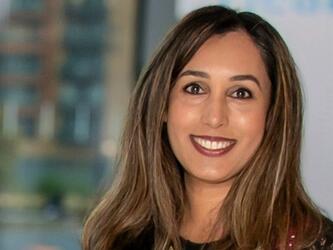Creating meaningful connections
We are all different. We are all unique. Our differences are our superpowers. Well, that’s what I tell my daughter at least.
It all sounds very poetic and exciting and beautiful but unfortunately reality may not always feel that way. Differences, be it the way we look or how we think, can often create barriers, challenges, and difficulties. I have used the phrase ‘difficult conversations’ a record number of times in the last year. These are conversations that have been scary to think about, let alone say out loud and talk about with someone else.
However, they are also conversations that need to be had and heard. At the very least, to ensure that there are no misunderstandings and making sure that we are able to navigate our way around situations being fully aware moving forwards.
I have still a lot to learn and at times have questions that I am not sure of myself. The one thing I do know is that unless I ask the question I will never learn. The reality is that there isn’t always a clear answer, but we need to understand or at least be aware of the different perspectives that exist. Until we do, there will be many blind spots that we won’t be aware of. Those who know me, know that I do like my analogies.
It is a little like when we are learning to drive; we are taught to use ‘mirror, signal, manoeuvre’ to make sure we don’t miss the blind spot. Once we understand and have taken the time to hear or try in some ways to understand the different perspectives, only then can we be clear on what we think or how we want to progress.
The research industry is the one sector that should be leading the way on this. We hear a lot about making sure that we ask the right questions. We are trained in doing this. Our careers and the industry are based on exploring views, opinions and understanding people – all through the way in which we ask questions.
Much of the work I am involved with is researching those that are lesser heard and can at times be overlooked. This could be due to several reasons, ranging from not being aware of research to language or societal barriers. As researchers, it is our role to ensure that we reach out to all and be representative. It is a privilege to be able to speak up and represent voices of people from all backgrounds, faiths, community groups and values.
No-one is expected to know everything about everyone, which is why we ask the questions to understand the challenges that exist. Key is to ask questions in a way that is genuine and demonstrates empathy. One thing that I have been telling clients and colleagues is not to be afraid. Don’t be afraid to ask a question and acknowledge that you don’t know.
We all have so much to see, hear and learn. That is what makes what we do so worthwhile; having the ability to explore, learn and embrace. The work we do and the impact it has the potential to create will be at its best when we work collaboratively, bringing together different perspectives, experiences, and thoughts to create meaningful change.
The research industry has come together to work better and harder to narrow the gaps and improve. A collaborative approach bringing together different minds, experiences and perspectives will allow us to do better.
That said, there is one small request I have. Let’s all take a step back and not be afraid to ask questions of one another. We do this every day as part of our projects and for clients. However, let’s look at talking to one another more, as there is much that can often be left unsaid at the risk of not offending or sounding like you don’t know what you are talking about. Surely that is the whole point of asking questions in the first place – to learn.
Let’s continue talking and not shy away from the tricky, awkward and challenging conversations. Let’s please not be afraid and continue to learn and understand one another. If there is respect and a genuine willingness to share, there is nothing that can be lost, and we can ensure that as an industry we continue to create meaningful connections – not just with our clients, consumers, or target customers but with one another, too.
Recalling the good old words of Bob Hoskins: “It’s good to talk.” I say it’s even better to create conversations.
Shazia Ali is research consultant at Mint Research

We hope you enjoyed this article.
Research Live is published by MRS.
The Market Research Society (MRS) exists to promote and protect the research sector, showcasing how research delivers impact for businesses and government.
Members of MRS enjoy many benefits including tailoured policy guidance, discounts on training and conferences, and access to member-only content.
For example, there's an archive of winning case studies from over a decade of MRS Awards.
Find out more about the benefits of joining MRS here.












1 Comment
Jo
4 years ago
I will admit that sometimes a fear of appearing ignorant can make it harder to ask a question. Next time that happens, I will definitely try be less afraid - or perhaps to be afraid, but ask anyway. And listen to the answer.
Like Reply Report